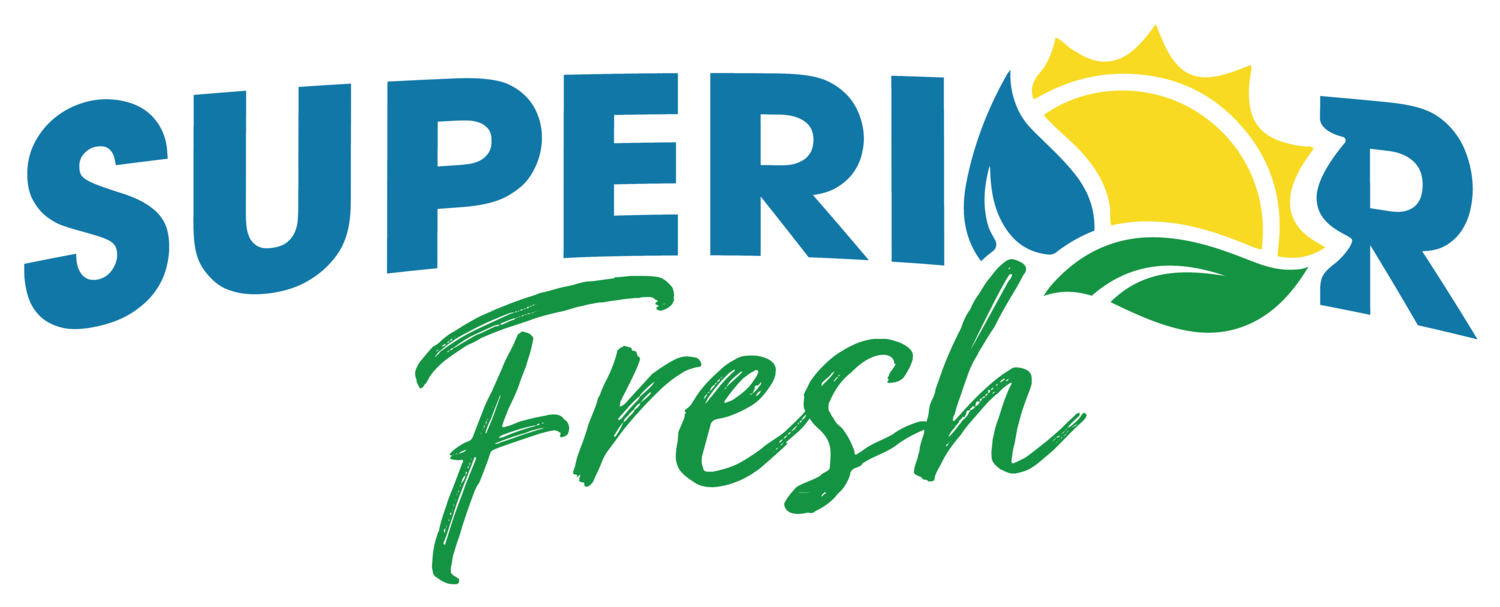Celebrating National Pollinator Week with Superior Fresh!
The Superior Fresh team is “abuzz” with excitement: It’s National Pollinator Week! This special week was designated by the US Senate over 13 years ago. And since its start, National Pollinator Week has grown to be a celebration of all pollinators including bees, butterflies, birds, and beetles (and more)! All of these pollinators play critical roles in our local ecosystems and food security.
Pollinator Fast Facts
Pollinators are responsible for ⅓ of the total food consumed by humans. This includes almonds, apples, avocados, and coffee just to name a few
40% of North American Agriculture needs bees to survive!
There are over 20,000 different species of bees from the bumblebees to ground-nesting bees to green bees to big bees2. In Wisconsin, there are over 191 documented bee species3
All of these bees pollinate food crops, wildflowers, and trees. They support ecosystems around the world.
Currently, pollinators are being threatened by pests, pesticides, poor forage, and poor nutrition.
Pollinators need your help!
"Wildflower meadows are prime pollinator habitat, but we’ve lost 97% of them since the 1930's" - Professor David Goulson
Pollinator populations are changing and species are in decline around the world. This decline is largely from human impact. Farming has transitioned to large monocultures and is heavily dependent on pesticides. We lose 3 acres of farmable land to human development every minute!
While sustainable farming is making a comeback, there is so much work to be done. As much as we need pollinators to feed us, they need our help to save them! In honor of National Pollinator Week plant some blooms in your yard, spend some time outside, see how you can improve your personal impact on bees.
Fun ways to celebrate National Pollinator Week!
Pack a picnic and take a walk around your neighborhood. Keep an eye out for flowers and other blooms that support local pollinators.
On a rainy day, read about your local pollinators and conservation groups in your area.
Reach out to your local government about increasing pollinator habitat in your town.
Print out the masks attached and have a fun coloring day.
Here at Superior Fresh, we work to produce healthy, sustainable food, conserving both natural resources and the surrounding native ecosystems. Learn how choosing Superior Fresh products supports pollinator conservation in Wisconsin.
Sustainable Farming and Superior Fresh
Our farm conserves our world’s precious natural resources. All farm wastes are recycled into compost and used on our native flower, tree and shrub plantings. Our growing methods allow us to use 1/10 of the land and 1/20 of the water needed for traditional farming. We have planted over 1,000,000 wildflowers, shrubs, and trees, in partnership with our sister company, Superior Fresh Family Farms. These native species host a plethora of native wildlife including the nationally endangered Karner Blue butterfly and American Kestrel.
Education and Outreach
Superior Fresh Family Farms has been working for over 8 years to conserve over 800 acres of native savannah grasslands, wildflower prairie, and oak forests. The best part, they get to share this work with communities all across rural southwestern Wisconsin.
School groups, gardening clubs, and bird watchers all come out for tours and the chance to enjoy our land. They delight in our beautiful wildflower valleys that buzz with pollinators, spend time catching fish on our two lakes, or just take a moment of bliss listening to the songbirds that fill our forests. Freshwater Family Farms allows communities to see what is possible when conservation and sustainability come first.
Conservation Success in Wisconsin
Can you spot this pretty pollinator?
Superior Fresh Family Farms incorporates many practices that support pollinators, such as the nationally endangered Karner Blue butterfly. Controlled burns are exciting and impactful conservation practices. For thousands of years, Native Americans managed forests and prairies with controlled burns. This stimulated plant growth and allowed for the now endangered barrens to form.
As this land transitioned to farmland and became more inhabited, the burnings were stifled and barrens became rare. Our farm is dedicated to restoring native prairie, using methods such as controlled burns, native seed dispersion, and invasive species removal. We source all of our plants and seeds from the midwest both supporting the local economy and ensuring that our plants thrive in the local environment.
How can you BEE the Change?
Plant native and pollinator-loving plants.
Support organizations like the Xerces Society, and other local conservation groups.
Buy from local, sustainable companies like Superior Fresh that conserve native environments in your own backyard!
BEE sure to check out Superior Fresh at your local retailer. Together we can all improve our planet for the bees, trees, and everything in between.
[1] https://www.pollinator.org/list-of-pollinated-food
[2] http://www.bbc.com/earth/story/20150615-the-truth-about-bees
[4]https://modernfarmer.com/2018/05/10-numbers-that-show-how-much-farmland-were-losing-to-development/





